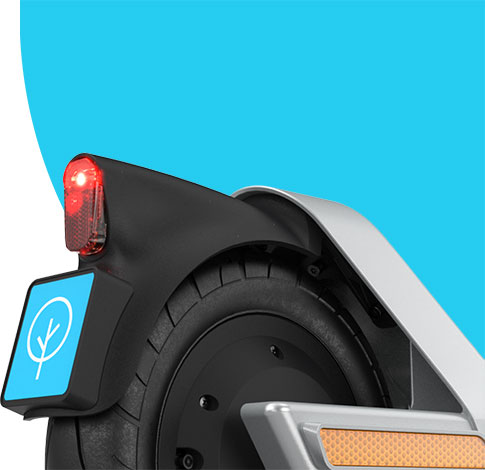A Conversation with Jose Viegas: E-scooters & Sustainability

What are your thoughts on shared e-scooters?
[Shared e-scooters are] an extremely important innovation with a lot of advantages. They don’t occupy a lot of public space and can take you until the last meter. Public transport can’t reach everyone’s house and e-scooters help in connecting people to public transport.
How many e-scooters do you think a city should have?
The number of e-scooters in a city depends on a few factors: Availability, security, comfort, price. The demand should decide the supply of scooters.
What does the future of micro-mobility look like?
The real market is not the occasional one: It’s the daily use and connecting people to public transport every day. If you manage to have thousands of daily riders, it’s easier to convince the city to have more two-wheel lanes. This will create the mass of users that politicians can’t ignore.
What are your thoughts on e-scooters and sustainability?
It is true that currently some e-scooter trips are casual trips, just for fun or replacing walking trips. [Micro-mobility] will have a positive environmental impact to the extent that they replace car trips either end-to-end or as feeders to public transport, and for that, they have to become part of the regular mobility options.
There remain some environmental concerns with the fossil fuel vehicles used to transport scooters for charging and redistribution. This could be solved in a number of ways, such as through operators using electric vehicles for these tasks, or cities’ installing recharging stations. There are other problems like vandalism and vehicle duration, but I expect these will be mostly solved as this mode scales up.
How can city governments encourage their communities to adopt more sustainable, human-sized transportation options (like micro-mobility)?
The barrier to such scale-up seems to be a combination of price, safe operating space and availability, in different combinations in different cities. Overcoming it requires coordinated action from authorities and operator(s).
A way out of this problem could be found through coordinated action by multiple parties: The municipality could start by installing a high-quality standard 2W network in parts of the city where public space for that is more easily available (wider avenues, larger share of dwellings with their own parking). To have a meaningful scale, this should already allow trips of at least 2 km (half-an-hour walking) and include access to one or two mass transit stations.
Micro-mobility operators would – in parallel – introduce attractive packaging price offers and increase their supply in the area and especially in the immediate vicinity of mass-transit stations serving it. As all these vehicles are georeferenced, special promotional prices in designated areas are quite easily to implement for these services. This exercise should be monitored with careful, reliable data collection allowing a before and after comparisons. This would allow some design improvements in the same area and especially provide lessons for the next areas of implementation.
And, if adoption rates are good and largely based on transfers from car trips, this could be serving as a demonstration that the statement “build it, and they will come” also applies for micro-mobility, thus creating a basis of political legitimacy for a bolder program of building that wide, safe 2W network and promoting use of micro-mobility as an essential instrument of a clean, efficient and fair urban mobility. (via Linkedin)
How can micro-mobility be scaled in partnership with operators and governments to advance social and environmental goals?
An effort should be made to create travel passes (weekly or monthly) that would encourage a more regular use of shared e-scooters, as it already happens with many shared bike schemes operated by municipal companies. So, this could be an interesting development if done in coordination between authorities and operators.
Thanks for catching up, Jose!
Jose Viegas is the Chairman of the Environment and Sustainability Board at EDP. Viegas was Secretary-general of the ITF (International Transport Forum at the OECD) between August 2012 and August 2017. Prior to joining the ITF, José Viegas was Full Professor of Transportation at the University of Lisbon. He is currently a freelance consultant on Sustainable Mobility and Strategic Change, having been the Methodological Coordinator of the “Sustainable Mobility for All” project (lead organization: World Bank), and Responsible for the Strategic Framework concept of the “Transforming Urban Mobility” project at the WBCSD.
